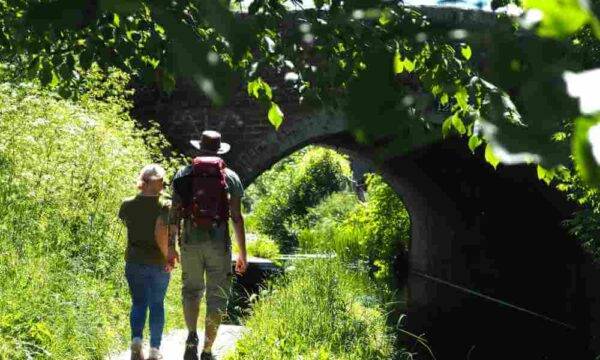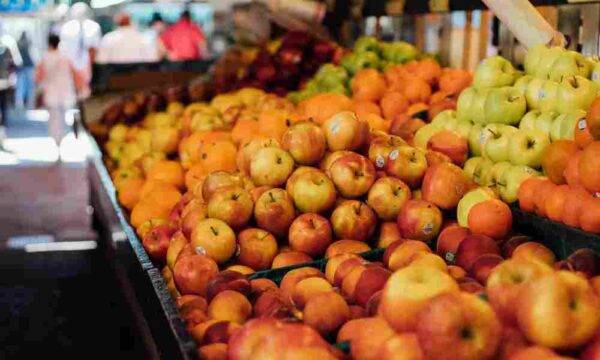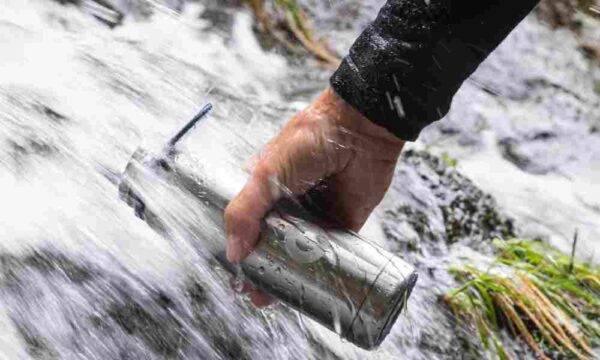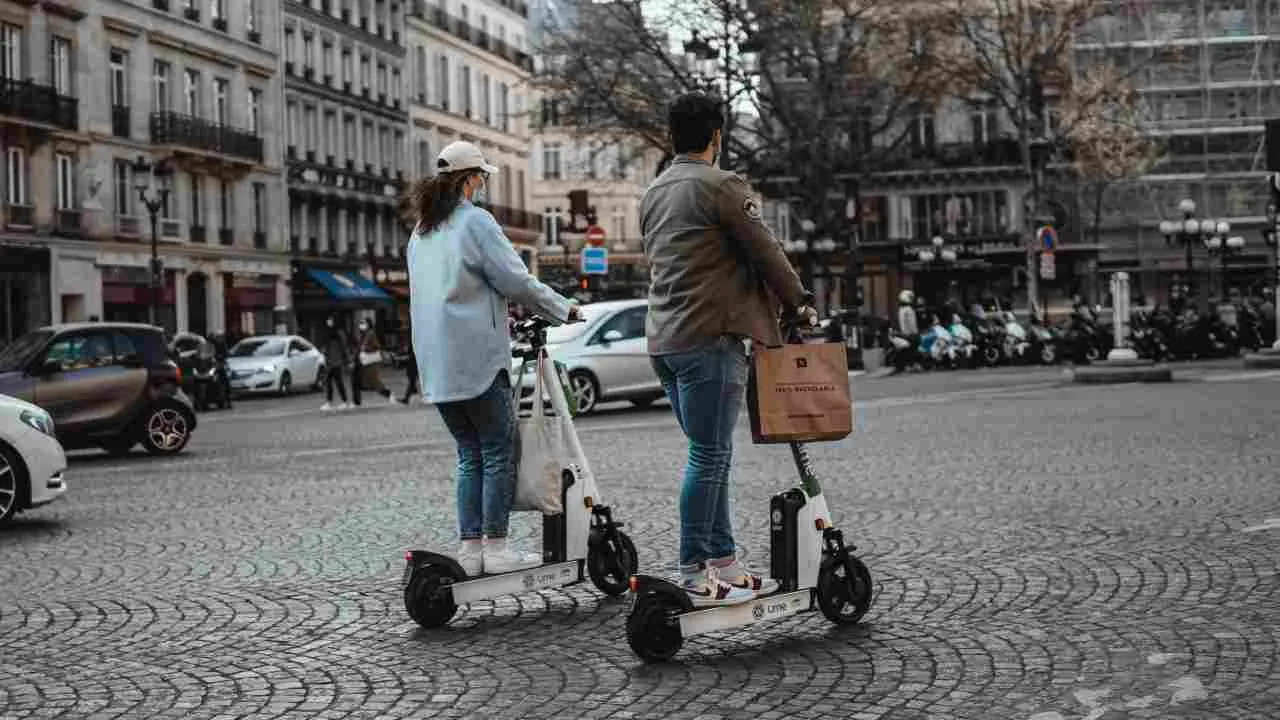Sustainable travel has become an increasingly important topic in recent years as people have become more aware of the impact of tourism on the environment. In the UK, sustainable travel will be particularly important in 2023, as the country aims to reduce its carbon emissions and move towards a more sustainable future.
In this blog post, we will explore the topic of sustainable travel in the UK, including why it is important and how you can reduce your carbon footprint while exploring the country. From choosing eco-friendly accommodations to using refillable water bottles, there are plenty of ways to travel sustainably in the UK. By making conscious choices and supporting local communities, we can ensure that our travel experiences have a positive impact on the environment and the people who call the UK home. Exploring sustainable travel options in the UK, including how to travel cheaply in London, can help reduce your environmental impact and support local businesses. So, let’s dive into the world of sustainable travel in the UK and discover how we can explore this beautiful country in a responsible and sustainable way.
How to achieve sustainable travel in the UK with a smaller carbon footprint?
1. Choose sustainable transportation:

One of the biggest contributors to carbon emissions in travel is transportation. To reduce your carbon footprint, consider taking public transportation, walking, or cycling instead of driving. Many UK cities have excellent public transport networks, and cycling is a popular and eco-friendly way to explore the countryside. Finding sustainable transportation in the UK is easier than ever before. Here are some ways and places to find sustainable transportation options:
- Public transportation: The UK has an extensive public transportation system, including buses, trains, and metros, that is often a more sustainable option than driving a car. Use apps like Citymapper, Google Maps, and National Rail Enquiries to find the best public transportation options for your journey.
- Cycling: Cycling is an eco-friendly and healthy way to get around the UK. You can rent a bike from various bike-sharing schemes like Santander Cycles or Mobike, or you can bring your own bike on trains and buses.
- Electric vehicles: If you must drive, consider renting or purchasing an electric vehicle, which produces fewer emissions than a traditional petrol or diesel car. Electric vehicle charging points are becoming more widespread across the UK, and you can find them using apps like Zap-Map or PlugShare.
- Carpooling: Carpooling or ride-sharing with others who are heading in the same direction can reduce the number of cars on the road, thus reducing emissions. Apps like BlaBlaCar and Liftshare connect drivers and passengers for shared rides.
- Walking: Walking is not only the most sustainable transportation option but also allows you to fully experience the beauty of the UK’s towns and cities. Use walking apps like Walkit or Google Maps to plan your route and explore the local area on foot.
2. Stay in eco-friendly accommodation:

When choosing where to stay, look for eco-friendly accommodation options such as hotels or hostels that have a commitment to sustainability. Some hotels have installed solar panels, rainwater harvesting systems, or eco-friendly cleaning products to reduce their environmental impact. If you are looking for eco-friendly accommodations in the UK, there are several ways to find them. Here are some tips on how and where to find eco-friendly accommodation in the UK:
- Use online booking platforms: Many online booking platforms like Booking.com, Expedia, and Airbnb offer filters for eco-friendly accommodations. You can narrow down your search by selecting options like “sustainable”, “eco-friendly,” or “green” in the filters.
- Search for Certified Eco-Friendly Accommodation: There are several certifications for eco-friendly accommodation in the UK, such as the Green Tourism Business Scheme, Green Key, and Eco-lodge Certification. You can search for accommodations with these certifications on their websites or by using their online directories.
- Check hotel websites: Many eco-friendly hotels and resorts have their own websites that highlight their sustainable practises. You can look for key phrases like “sustainable”, “eco-friendly”, “green,” or “responsible tourism” on the hotel websites to find out if they prioritise sustainability.
- Use Sustainable Accommodation Directories: There are several directories that specialise in eco-friendly and sustainable accommodation, such as EcoBnB, Green Pearls, and Ecotourism Ireland. These directories offer listings of sustainable accommodations across the UK.
- Ask for Recommendations: If you are travelling to a specific destination, you can ask for recommendations from local tourism boards or eco-tourism organisations. They may be able to provide you with a list of eco-friendly accommodation options in the area.
3. Eat local, organic, and seasonal food:

The UK has a rich culinary scene, and by choosing to eat local, organic, and seasonal food, you can support local farmers and reduce your carbon footprint. Many restaurants and cafes now have menus that showcase local ingredients, so be sure to seek out these options. Eating local, organic, and seasonal food is an important aspect of sustainable travel in the UK. Here are some tips on how and where to find such food:
- Visit farmers’ markets: Farmers’ markets are a great place to find fresh, locally produced food. Many towns and cities in the UK have farmers’ markets where local farmers sell their produce. Some popular farmers’ markets include Borough Market in London, Edinburgh Farmers Market in Scotland, and Cardiff Market in Wales.
- Look for local food shops: Local food shops such as greengrocers, butchers, and bakeries often sell local, organic, and seasonal food. These shops can be found in most towns and cities in the UK.
- Check out community-supported agriculture schemes (CSAs): CSAs are initiatives where consumers can buy a share of a local farm’s produce. Members receive a weekly or monthly box of fresh, organic produce. Many CSAs also offer the opportunity to visit the farm and get involved in the growing process.
- Eat at restaurants that serve locally sourced food: Many restaurants in the UK now serve locally sourced food, and some even have their own gardens where they grow their own produce. Look for restaurants that advertise their commitment to sustainability and local produce.
- Visit organic farms and pick-your-own farms: Many organic farms in the UK offer farm tours and the opportunity to pick your own fruit and vegetables. This is a great way to get fresh, seasonal produce while supporting local farmers.
- Check out food festivals: Food festivals are a great way to try local, seasonal food and support local producers. Some popular food festivals in the UK include the Ludlow Food Festival in Shropshire and the Abergavenny Food Festival in Wales.
4. Use refillable water bottles and coffee cups:

Reduce your plastic waste by bringing a refillable water bottle and coffee cup with you. Many cafes and restaurants offer discounts to customers who bring their own cups, so it’s a win-win for both you and the environment. Finding refillable water bottles and coffee cups in the UK is relatively easy, and there are several options to choose from. Here are some tips on how and where to find them:
- Online retailers: There are numerous online retailers that sell a variety of reusable water bottles and coffee cups. Some popular options include Amazon, Ecoffee Cup, Chilly’s Bottles, and KeepCup.
- Speciality stores: Specialty stores that focus on eco-friendly and sustainable products are another great place to find refillable water bottles and coffee cups. Some popular options include Lush, Neal’s Yard Remedies, and Holland & Barrett.
- Supermarkets: Many supermarkets now stock reusable water bottles and coffee cups as part of their eco-friendly product lines. Some popular supermarkets that offer these products include Tesco, Sainsbury’s, and Waitrose.
- Coffee shops and cafes: Many coffee shops and cafes now offer discounts to customers who bring their own reusable cups. You can find reusable cups for sale at some coffee shops as well, such as Costa Coffee, Starbucks, and Pret a Manger.
- Markets and fairs: Eco-friendly markets and fairs are a great place to find a variety of sustainable products, including reusable water bottles and coffee cups. Check out local markets and fairs in your area to see if they offer eco-friendly products.
5. Choose sustainable activities:

The UK has plenty of sustainable activities to choose from, including hiking, cycling, wildlife watching, and exploring national parks. By choosing these activities, you can experience the beauty of the UK’s natural landscape without leaving a large carbon footprint. Finding and choosing sustainable activities in the UK is easier than you might think. Here are some tips on how and where to find sustainable activities in the UK:
- Research online: A simple Google search can provide a wealth of information on sustainable activities in the UK. Look for websites and blogs that specialise in sustainable tourism, eco-tourism, or responsible travel.
- Check with local tourism organisations: Local tourism organisations can provide valuable information on sustainable activities in their area. They may also have recommendations for eco-friendly tour operators, accommodations, and attractions.
- Use sustainable tour operators: Many tour operators in the UK specialise in sustainable tourism. Look for operators that have certifications or memberships in sustainable tourism organisations such as Green Tourism, which provides sustainability certification to tourism businesses.
- Look for eco-friendly accommodations: Many eco-friendly accommodations offer sustainable activities such as guided nature walks, conservation projects, or wildlife watching. Look for hotels and hostels that are certified by organisations such as the Green Tourism Scheme.
- Consider sustainable transport options: Choosing sustainable transport options can be a sustainable activity in itself. Look for tour operators that use electric vehicles or public transportation. Walking and cycling tours are also great sustainable options.
- Visit national parks and nature reserves: National parks and nature reserves in the UK offer a variety of sustainable activities such as hiking, wildlife watching, and conservation projects. These activities support the conservation of natural areas while providing visitors with a unique and sustainable travel experience.
6. Offset your carbon emissions:
Despite your best efforts, it can be challenging to completely eliminate your carbon footprint while travelling. Consider offsetting your carbon emissions by supporting carbon offsetting projects, which help reduce carbon emissions in other areas. Here are some options for offsetting your carbon emissions while travelling in the UK:
- Carbon offsetting websites: There are many carbon offsetting websites available that allow you to calculate your carbon footprint based on your travel and lifestyle choices and then purchase offsets to support projects that reduce greenhouse gas emissions. Some popular carbon offsetting websites in the UK include Carbon Footprint, ClimateCare, and Carbon Clear.
- Airline carbon offsetting programmes: Many airlines offer carbon offsetting programmes that allow you to purchase offsets when booking your flights. These programmes often support projects related to renewable energy, energy efficiency, and forestry.
- Carbon offsetting projects in the UK: There are many carbon offsetting projects located within the UK that you can support directly. For example, you can support reforestation projects or renewable energy projects in the UK through organisations like the Woodland Trust or Good Energy.
- Sustainable travel providers: Some sustainable travel providers in the UK, such as Responsible Travel, offer carbon offsetting as part of their travel packages.
Frequently Asked Questions
What is Sustainable travelling?
Sustainable travel is a form of tourism that takes into account the environmental, social, and economic impact of travel on the places visited. It involves making conscious choices to reduce the negative impact of travel on the environment and local communities while supporting sustainable tourism practises that benefit the local economy and culture.
Sustainable travel may involve using public transportation or eco-friendly modes of transport, choosing eco-friendly accommodations, supporting local businesses and farmers, and engaging in environmentally friendly activities. It also includes minimising waste, reducing carbon emissions, and respecting local customs and cultures.
Sustainable travel not only benefits the environment and local communities but also enhances the travel experience by providing a more authentic and meaningful interaction with the places visited. It is an important aspect of responsible tourism, which seeks to minimise the negative impact of travel while promoting positive outcomes for both visitors and hosts.
Why is sustainable travel important in the UK?
Sustainable travel is important in the UK to protect the environment and natural resources, preserve cultural heritage, and support local communities. The UK is a popular tourist destination, and tourism can have a significant impact on the environment and local communities if not managed sustainably. By making sustainable choices while travelling, we can reduce our impact and contribute to a more sustainable future.
What are some examples of sustainable travel practices?
Examples of sustainable travel practises include using public transportation or eco-friendly modes of transport, choosing eco-friendly accommodations, supporting local businesses and farmers, and engaging in environmentally friendly activities. It also includes minimising waste, reducing carbon emissions, and respecting local customs and cultures.
How can I offset my carbon emissions while travelling in the UK?
There are several ways to offset your carbon emissions while travelling in the UK. You can purchase carbon offsets from websites, participate in airline carbon offset programmes, or support local carbon offset projects. It’s important to research and choose credible and effective projects that are independently verified and certified.
Can sustainable travel be affordable?
Yes, sustainable travel can be affordable. There are many budget-friendly sustainable travel options available, such as using public transportation, staying in eco-friendly hostels or camping, and supporting local businesses and markets. Additionally, sustainable travel can often provide a more authentic and meaningful travel experience that may be more fulfilling than traditional tourism activities.
Conclusion:
In conclusion, sustainable travel in the UK is important not only for reducing our carbon footprint and protecting the environment but also for supporting local communities and preserving cultural heritage. By making conscious choices to reduce the negative impact of our travel, we can help ensure that future generations will be able to enjoy the beauty and diversity of the UK’s landscapes and cultures.
From using public transportation and eco-friendly modes of transport to choosing sustainable accommodations and supporting local businesses, there are many ways to travel sustainably in the UK. By making small changes in our travel habits and choices, we can all make a positive difference and contribute to a more sustainable future.
So, whether you’re planning a weekend getaway or a long-term trip, consider the impact of your travel and make sustainable choices that support the environment and local communities. Let’s all do our part to protect the planet and create a more sustainable future for everyone.
